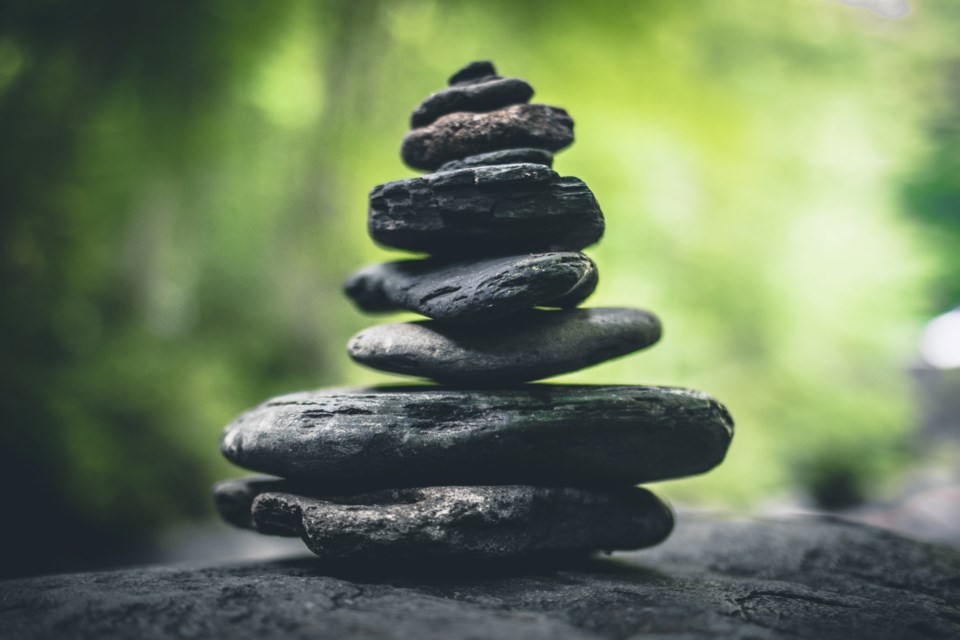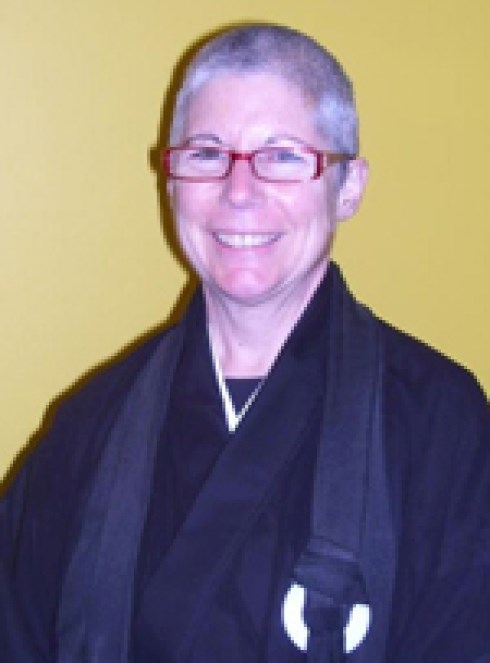 I’d like to talk about how several guidelines can play out in everyday Zen practice.��
I’d like to talk about how several guidelines can play out in everyday Zen practice.��
According to the teachings of the Buddha we are whole and complete just as we are. No need to add anything in or take anything away.��
This is extraordinarily different from our cultural norm: not being good enough until we acquire that car, job, significant other.����So, I take a moment daily to just let the idea settle in. It allows me to slow down and contemplate my need to be constantly on the move, fidgeting, eating, or being entertained. It is safe to settle in because we’re actually pretty OK, or maybe fantastic, or miraculous even.
Settling in is useful because this allows me to hear the quiet voice of wisdom we all carry within us, but cannot always hear. According to Buddhist teachings following that tiny voice will lead to a life lived ethically. This is pretty encouraging. We’re actually fine��and��we have an inner guide to help us minimize the damage we do to others with our ‘greed, anger, and delusion’.
This scary Zen phrase refers to a revolutionary idea, one that becomes evident if I sit quietly and watch my mind. Basically, we want what we like (code word greed), we don’t want what we don’t like (code word anger), and we don’t realize that we are driven 24/7 by these two forces (part of our delusion).
So we often turn away from things we find uncomfortable��even before we notice what is going on. Tragically, this collective turning away helps build and maintain our cultural blind spots, contributing to systemic racism, poverty, and climate-change denial.��
As my practice unfolds, I can see how avoidance shuts me down, allowing me to be indifferent to the suffering of the most vulnerable. People just like me have been silent, and allowed the most vulnerable to fall through the cracks.
I begin to see the power of the force of denial in my life – So much pandemic time watching The Gilmore Girls! When this is healing, then so be it. But if it becomes unsatisfying to my wise inner voice, what then?��
The counter idea of ‘leaning in’ helps us to stay with discomfort, not running away, but learning from it.
While we are undergoing this process of maturation, learning to be conscious of our individual and global effects on others, there are more formal Zen guidelines to help us. The first is “to be of benefit to all”.��
Grappling with this seemingly simple, yet sometimes paradoxical request can initiate a life lived to the fullest, a life of self-reflection, of love and generosity of heart.��
During these pandemic times, I choose to ‘lean in’ to the discomfort of learning about the most vulnerable among us. How can I be of benefit to all in this situation?
By getting out of my comfort zone with sites such as povertykills2020.ca,��fundrazr.com/streetsurvival (a site by Indigenous Harm Reduction Team),��and��Black Lives Matter 91ԭ��,��I can take action to stand shoulder to shoulder with the vulnerable.����
As I open up, I also begin to see connections between disregard for the homeless or marginalized and disregard for our life-giving planet; important because as one neighbour suggests: “returning to ‘business as usual’ is a suicide pact.”��
Being silent about the oppression of the most vulnerable, the pre-existing opioid crisis, an economic system that lulls us to sleep as we race towards our doom is demonstrably not safe, not of benefit to all.��
So spring-boarding off Dr. Bonnie Henry’s advice: I choose to be kind, calm, and vocal.
 Rev. Soshin McMurchy, lives, loves, and physically distances on the ancestral lands of the��������Ć��Ŧ������and Lkwungen speaking peoples, and serves as a Buddhist Chaplain with the University of��Victoria Multifaith Services where she teaches meditation. She works part-time at the Greater Victoria��Public Library and lives with her partner of 40 odd years.'
Rev. Soshin McMurchy, lives, loves, and physically distances on the ancestral lands of the��������Ć��Ŧ������and Lkwungen speaking peoples, and serves as a Buddhist Chaplain with the University of��Victoria Multifaith Services where she teaches meditation. She works part-time at the Greater Victoria��Public Library and lives with her partner of 40 odd years.'
You can read more articles on our interfaith blog, Spirituyally Speaking, HERE
Photo of balancing stones is by�����Dz���
��
��


